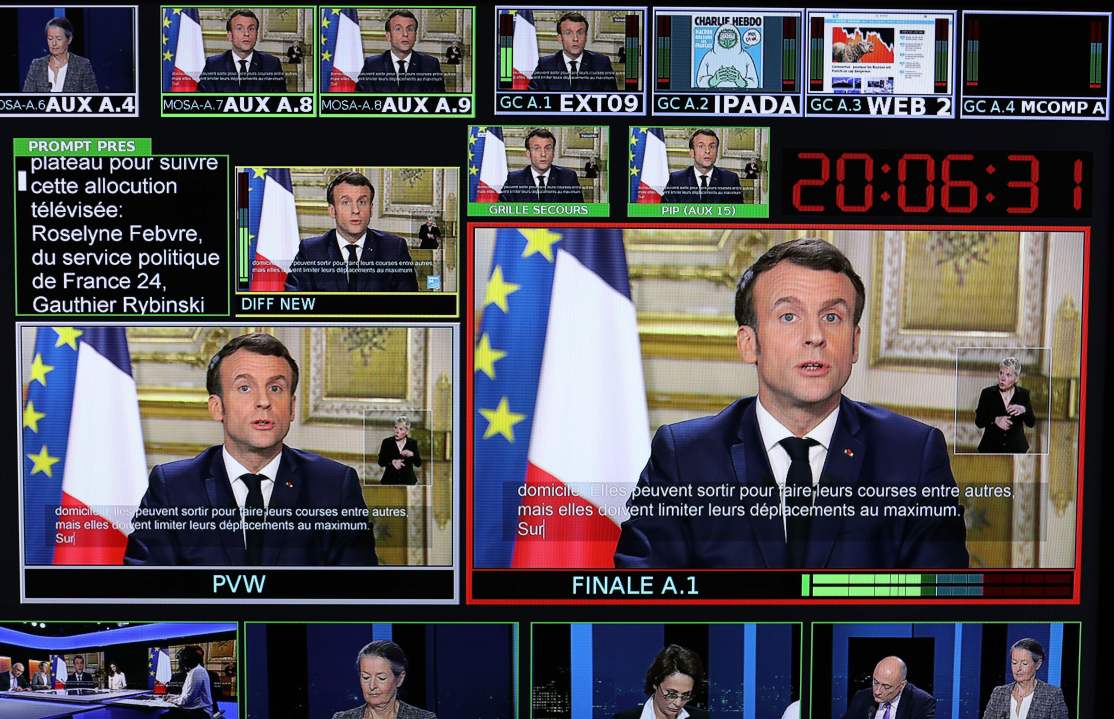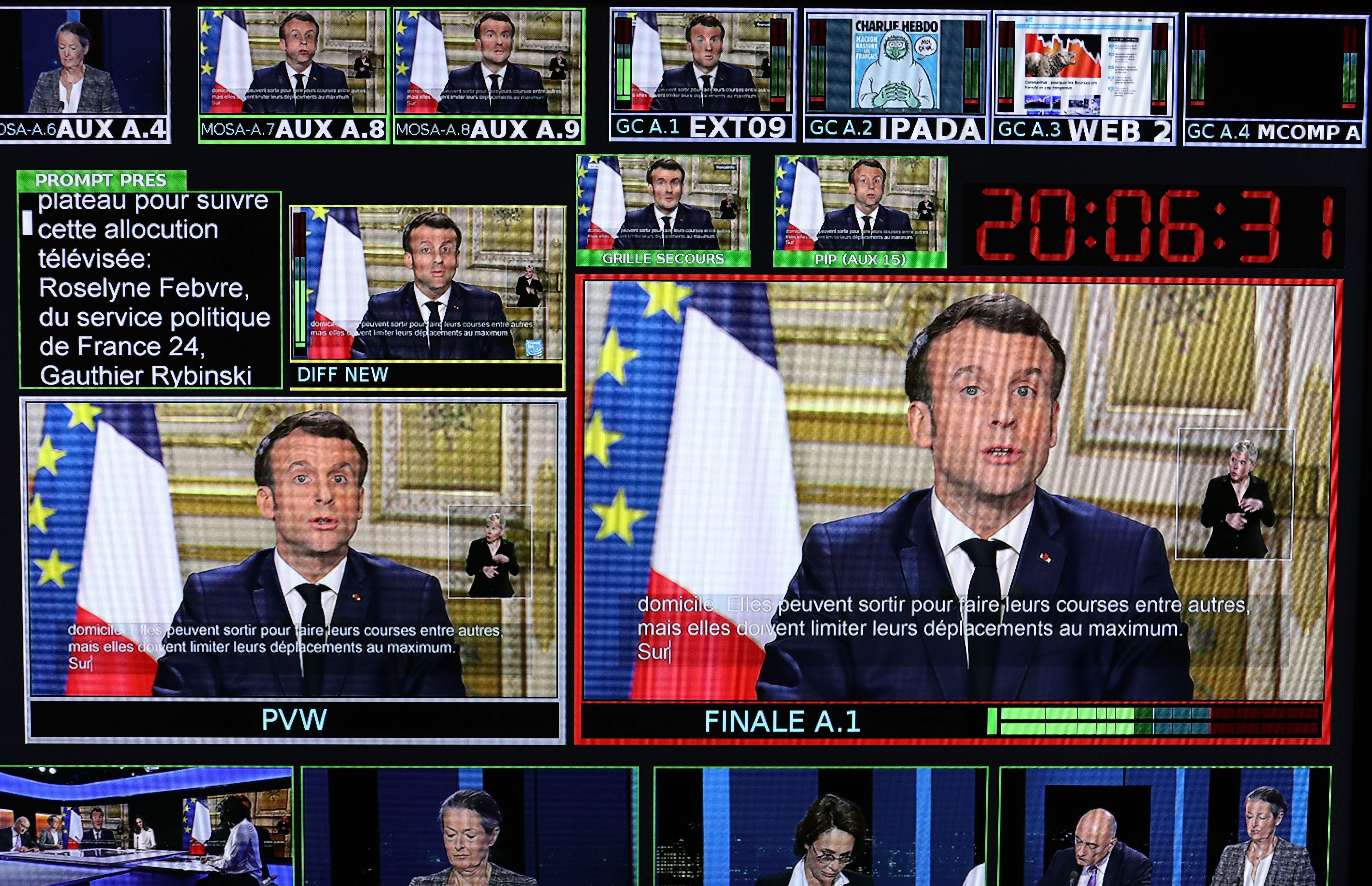‘At the beginning of a pestilence and when it ends, there’s always a propensity for rhetoric. In the first case, habits have not yet been lost; in the second, they’re returning. It is in the thick of a calamity that one gets hardened to the truth – in other words to silence.’ Albert Camus, The Plague.
Faced with Covid-19, France has not yet reached that moment of silence when one gets hardened to the truth. Rhetoric still has the upper hand as President Macron’s address to the nation on Monday night revealed. Repeating six times that France was at war with the virus and that consequently she had to move to a state of quarantine, he studiously eschewed the French word confinement, which is the state France finally moved to at 12 noon on 17 March, following in Italy and Spain’s ghostly footsteps. All states have and will make mistakes in dealing with the epidemic. But in France, the beginning of the pestilence has seen French rhetoric contribute to the ‘collective blindness’ of the nation, to adopt the words of a recent Le Figaro editorial. And I am bound to say, despite my love and admiration for France as a nation and people, it is a blindness tinged with arrogance from too much lesson-giving that has settled on France’s countenance.
President Macron refused to postpone nation-wide local elections on the Sunday. The contradiction signalled to the population that social distancing was pointless
First, at the end of January, the health minister assessed the risk of France being infected as ‘practically nil’ because, as the saying went, France had one of the best health services in the world. Then when Italy took drastic measures to halt the propagation, France evinced a sniffy superiority towards her Latin neighbour redolent of her age-old and self-proclaimed status as ‘eldest daughter of the Church’, who always knows best.
As the epidemic spread and France quickly moved towards the top of the infected nations’ league table, last week she chose to take the Italian route of closing schools and universities. But her government, still in lesson-giving mode, castigated Donald Trump for closing America’s borders to Europeans. That was followed last Saturday with the closure of all cafés, bars and restaurants and calls for social distancing. But extraordinarily President Macron refused to postpone nation-wide local elections on the Sunday. The contradiction signalled to the population that social distancing was pointless. In Paris, thousands of young people took to the parks and the banks of the Seine to party. This prompted President Macron’s speech to the nation on Monday night, the lockdown, the curfew-style measures for the next 14 days, the postponement of elections and the closure of most frontiers.
But far from this being a time for humility, the lesson-giving rhetoric of French politicians and the media has turned to asking, in the manner of Le Monde, ‘what is Boris Johnson playing at?’ for not having introduced full lock-down measures like Italy, France, Spain. Britain is ‘continuing to go it alone’ and is portrayed as ‘risky’ even reckless, with Le Monde’s strapline playing to the sensational: ‘According to Boris Johnson’s advisors, it will be necessary for 60 per cent of the British population to contract the illness to develop collective immunity’. Other than the surrogate swipe at Brexit, hypocrisy springs to mind. And now because France has chosen full lockdown – after much hesitation – certain states which do not follow the French norm are criticised. Yesterday, France’s prime minister warned that if Britain did not take more drastic measures then France would close its borders with her. But this is to overlook that most states have not taken the French route. Holland, for example, has explicitly excluded confinement and Germany is also taking softer measures. Furthermore the French appear to have given little thought to what happens when confinement is lifted after 14 days.
It was to be hoped that once confinement was implemented the lesson-giving rhetoric might give way to silence. Before confinement Le Figaro carried a condescending headline: ‘Quarantine: when France discovers that Italians can respect the rules’. Now it is France’s turn to be judged internationally by how well she implements her quarantine. Things do not auger well. The night of Macron’s speech to the nation, hundreds of thousands of French exited Paris and the cities for the relative haven of the provinces in the manner of occupied France’s 1940 exit to the relative freedom of the southern zone. But in this instance potentially spreading the virus to largely unaffected areas of the country. Similar to 80 years ago, every person leaving their home (to go to the shops, to walk the dog) must carry a downloaded exeat pass certifying on their honour the legitimacy of their sortie. Breach of the rules will incur a fine from 38 to 135 euros (£34 to £123). The interior minister warned gravely that 100,000 police would enforce the regulations, ‘the toughest in Europe’. But respect for authority has not always been a French trait, as President Macron knows only too well. Already police have intervened to restore calm to food queues in Mulhouse, Nice, Toulon.
The French still have time to drop the rhetoric towards other nations, to fall silent, and concentrate on expunging the virus. Of course, it would be too much to hope that, as Camus warned, the rhetoric does not return when the current plague has been vanquished.








Comments